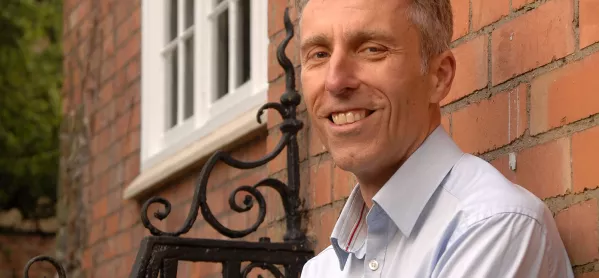I should be pleased, I really should be, and I suppose that I am to a degree. But it’s hard to only see the positive when I hear so many people visiting a college for the first time and saying, “I never realised.” Civil servants, politicians, employers, journalists, school teachers, parents.
There is so much to like about that response because it is always followed by any one of a number of the positive characteristics of colleges. “I never realised colleges: do so much; have such amazing facilities; work so closely with employers; are involved in high-level skills; have passionate and dedicated staff; have great students.” You get the picture. All important reasons why I love colleges and what they do for people, communities and employers.
So I am genuinely pleased that people are always impressed, but it’s the surprise that gets to me. It shows that their expectations are nearly always low and wrong. I don’t really know what they expect - they probably don’t know either until their preconceptions are shattered. I think it reveals the prejudices so many people have about and against colleges and college students.
I know that prejudice is a strong word, but that’s what we are dealing with here. So many people who need to know better, who have influence over post-16 policy and funding simply know too little. And I suspect that many think that college students are only there because they have failed to go to university.
College visits
The lack of knowing is hardly a crime - we are in the education game after all - and colleges readily welcome people to show what they are all about. That’s why we always offer to arrange visits to colleges for people entering our world for the first time.
That’s also why we are delighted with the Department for Education “immersion programme” through which civil servants spend a couple of days in a college, getting beyond the surface and really starting to understand what makes a college tick, how policy plays out in the real world and what the challenges are. It’s a great initiative, with a waiting list, and as far as I can see, is universally welcomed by colleges and officials alike.
The immersion programme is a great response to a genuine need but it is undermined by the all-too-often-rapid movement of officials into and out of the college brief. The very point when we think an official is beginning to properly and deeply understand colleges is often when they move on. It’s great for them to get a promotion, I just wish it could be within the college area rather than outside of it.
Right to look at colleges
This all matters because the government and DfE are genuinely trying to invest in and support colleges to be central in facing up to the post-16 education, training and skills challenges. They are right to look to colleges, but we need knowledgeable officials who can help to develop the supportive policy and funding environment which has sadly been absent for far too long.
Colleges have been hit harder than any other part of the education system partly because schools and universities have fostered and benefited from largely uncritical public and media affection. That has allowed politicians to disregard colleges, and the lack of enough officials with deep knowledge of colleges has simply compounded the problem. Those that do understand, in the minority, face challenges within the Department to be heard above the schools and university voices.
Colleges have work to do to be ready to meet the challenges, of course, but it would be nice if we could build relationships with officials, safe in the knowledge that when they are successful they can achieve promotion within the college policy arena rather than somewhere else. Maybe we should have an immersion programme for college staff to work in the DfE? Perhaps we should go further, beyond immersion with secondments into the DfE from colleges and vice versa to go the next stage beyond the immersion programme?
David Hughes is chief executive of the Association of Colleges




